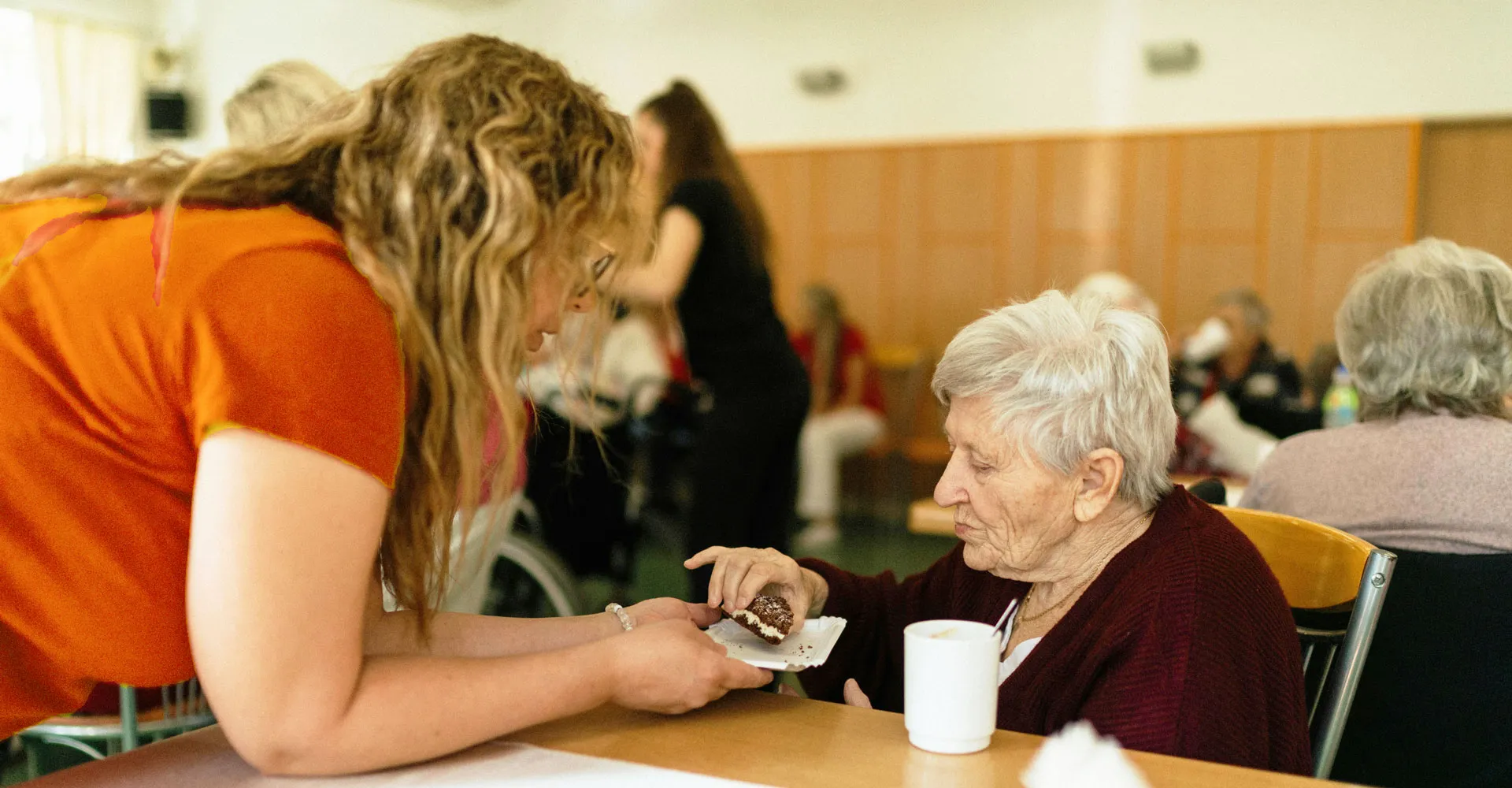Care home fees affect everyone
It is estimated that one in four of us will be living in a care home during the final years of our lives. Currently, it is not unusual for care home fees to be up to £52,000 per year or more. Unfortunately, very few of us consider the financial implications of our care fees until it is too late. If you have been prudent and managed to save for your later years, and you own your own home, it is likely that you will have to pay these fees yourself. In a short time, your assets will be eroded so that there is very little left for your children to inherit.
Contact us to discuss whether you are eligible for NHS Continuing Healthcare Funding now, so you know exactly where you stand.
Many couples do not realise that they may be able to safeguard at least half the value of their family home simply by changing the way they own it, combined with having effective Wills.

Who pays care home fees if the survivor in a couple has to go into care?
Most couples own their family home as ‘joint tenants.’ This means that, on the first death, the whole property automatically becomes the survivor’s. Should the survivor then need to go into a care home, the value of the whole property may be counted towards their assets in a financial assessment by the local authority to see if the survivor is liable to pay their fees or if the local authority should. By changing the ownership of the property to ‘tenants in common’, they will then each have their own share of the property. They can make wills once this is done that say the first to die puts their share into trust for, say, their children but allows the survivor to continue living in the property for as long as they need to. Then if the survivor must go into care, they are only assessed by the local authority as owning a half share of the property. This effectively safeguards the value of half the property for the next generation and is known as a life interest trust.
Important Notice:
Please note that our asset protection services are most effective before entering care. If the person requiring care is already in a care home, or if the property is solely in their name and unoccupied, we may not be able to assist. We recommend seeking advice before these circumstances arise to ensure the best outcome.
Obviously, legal advice should be taken before transferring any assets, not only to ensure that your wishes are honoured but also so that you do not fall foul of the ‘deprivation of assets’ rule. This allows local authorities to recover assets that they deem to have been deliberately disposed of by the owner so that they can avoid paying their own care fees.
We can provide the advice and guidance you need to effectively protect your assets. Please contact our team on 0113 320 5000.
NB: timescales and fees are subject to change – please ask for details.
Yes but there are consequences. We can advise you on the implications both good and bad.
Care fees:
If you transfer your home into someone else’s name and the sole intention is to avoid the payment of care home fees, the council will deem the transfer to be a “deliberate deprivation of assets”. If the local authority believes a transfer has occurred for this reason, it can place a charge against the property so that care fees are repaid when the property is sold. There is no time limit on this after which it is OK to transfer a property – the local authority can go back as far as they like.
Tax implications:
A transfer of property, in which you are living, to your children can be regarded by HMRC as a “gift with reservation of benefit”. This means that even after seven years have elapsed, it can be treated as part of your estate for inheritance tax purposes. Some people think that they can avoid this if they pay a nominal rent to their children. However, the rules are extremely strict and it is necessary to ensure that the rent paid it a full market rent and that there are regular rent reviews. This is not a comprehensive list of the rules which would apply.
Other consequences:
There can be other unforeseen consequences. For instance, should your child subsequently get into financial difficulty and be made bankrupt, this could result in the trustee in bankruptcy calling for your home to be sold. In addition, if your home is transferred into a child’s name and then that child divorces, their share of the home may form part of their divorce settlement.
Yes, this is possible. If the property is jointly owned by you and your spouse, it is essential that the property is held as tenants in common, rather than joint tenants. It is possible for you to leave your spouse a life interest in your half of the property and if your spouse goes into a care home after you die, only half the value of the house is taken into consideration by the local authority when carrying out a financial assessment to see if they had to pay for their own care. It is essential that the life interest trust is properly worded in the will and you should ensure that you consult a specialist solicitor.
If the couple are both still alive and one of them moves into a care home, the matrimonial home would not be included as part of the financial assessment as it would be part of the mandatory disregard. This means the part of the couple not in the care home could continue to live in the property as normal.
Yes, if the first part of the couple has passed away, the surviving spouse can move to another property of their choice. If there are any access funds left over, there is then a choice as to what happens with these funds. These monies can either be paid out. These monies would be split as follows - half to the survivor out of the couple and the other half to the ultimate beneficiaries. The ultimate beneficiaries would be those named in the Will who are to receive the half of the property belonging to the part of the couple who has passed away first. A common example would be children. The other option is that the monies are invested into a Trust account. The latter is a better option for inheritance tax purposes.
Yes, but only when the first part of the couple has passed away. A life interest trust is a Will trust (rather than a lifetime trust) meaning it only needs to be registered once the first part of the couple has passed away. The trust would be registered with the Trust Registration Service at HMRC. This is something we would be more than capable of assisting clients with.
A deed of variation (DOV) can be used to vary a Will or the intestacy rules after someone dies, within two years of the date of death. DOVs are often used to change the beneficiaries of an estate or the gifts themselves. A DOV cannot help someone to avoid paying care fees as such, and the effect on inheritance tax (IHT) must also be considered.
If you need to go into a care home, the local authority will financially assess you to see if you need to pay for your own fees. An effective way to protect your home from being included in the financial assessment is via life interest trusts (LITs). You can do LITs in your Wills if you own a property in joint names with someone (e.g., your spouse) as tenants in common. The effect of the LIT is that when the first of you dies, the survivor can continue living in the property for life but if they go into a care home, only their half of the property is included in their financial assessment. This is because the deceased’s half of the property is left to the ultimate beneficiaries in the LIT (e.g., your children). Therefore, at least half of the property value is ringfenced for the ultimate beneficiaries.
Where an adult needs to go into a care home, any property they own will be considered by the local authority in their financial assessment to see if they have to pay for their own care fees, unless it is deemed part of the mandatory disregards. Subject to certain conditions, from April 2015 a property must be disregarded from the financial assessment if the person’s child is living there and is: aged over 60; aged under 18; or incapacitated. Therefore, it is as if the person going into care does not own the property so it is not counted in their financial assessment and the child can continue to live there.
![Asset Protection Trusts Scam - What Families Need to Know [H1] winston-solicitors-asset-protection-trusts-scam.jpg](/sites/default/files/styles/small/public/blog-articles/2025-10/winston-solicitors-asset-protection-trusts-scam.jpg.webp?itok=lsfGHX_D)







